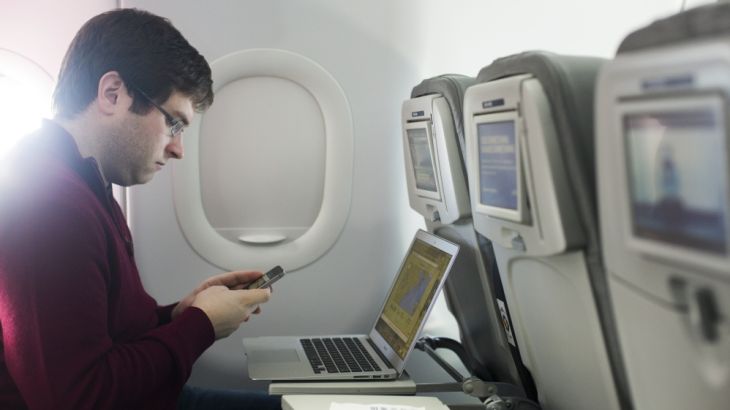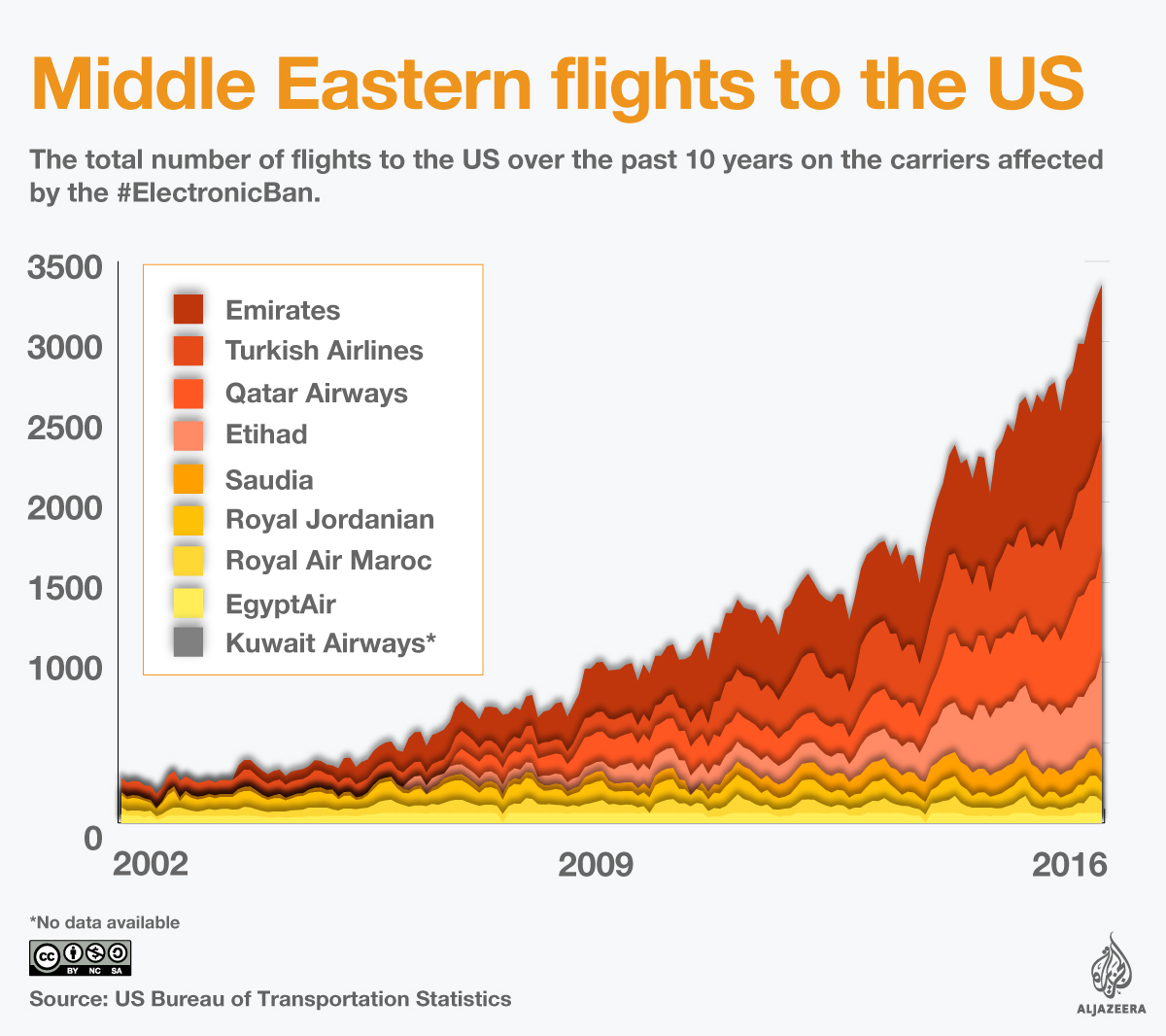Britain follows US in electronics ban on flights
UK authorities to prohibit large electronic devices on direct flights coming from six Muslim-majority countries.

Britain will follow the United States in banning carry-on electronic goods from passenger cabins on some inbound flights from Middle Eastern and North African nations.
Prime Minster Theresa May’s office announced on Tuesday that laptops and other larger electronic devices would be banned on direct inbound flights from Turkey, Lebanon, Jordan, Egypt, Tunisia, and Saudi Arabia.
Keep reading
list of 4 itemsAustralian women lose bid to sue Qatar Airways over 2020 strip searches
US officials probe new whistleblower claims against Boeing
Engine cover falls off Boeing plane during takeoff in US city of Denver
Earlier in the day, the United States imposed similar restrictions on planes coming from 10 airports in Muslim-majority countries in the Middle East and North Africa in response to unspecified security threats.
READ MORE: US electronics ban for Middle East flights draws doubts
“Direct flights to the UK from these destinations continue to operate to the UK subject to these new measures being in place,” the government spokesman told reporters.
|
|
“We think these steps are necessary and proportionate to allow passengers to travel safely.”
Passengers would not be allowed to bring phones, laptops or tablets over 16cm in length, 9.3cm in width, and with a depth of over 1.5cm into the cabin. These items would have to be in checked-in hold luggage, he said.
The move comes a week after President Donald Trump’s second bid to curb travel from a group of Muslim-majority nations was blocked by the courts.
Turkey said on Tuesday it would ask the United States to reverse the electronics ban.
“We particularly emphasise how this will not benefit the passenger and that reverse steps or a softening should be adopted,” Transport Minister Ahmet Arslan told reporters.
Airlines hit by the ban include flag-carrier Turkish Airlines, which has the highest foreign sales of any Turkish company.
Arslan said Turkish officials were speaking to their relevant American counterparts regarding the ban, which applies to direct flights to the US.
The minister said he hoped there would be a “positive” outcome from the talks, which began on Monday.
READ MORE: Travel ban – US ‘not the safe place it once was’
“Annually, 80 million flights take off from Istanbul and in my opinion, people should not confuse it” with less high-profile destinations, Arslan added.
“In that sense, we already take all kinds of security measures.”
A spokesperson from Emirates airline, another carrier expected to be severely affected by the ban, told Reuters news agency the new restrictions in the US were expected to last seven months.
Trevor Jensen, an aviation consultant and former airline captain, told Al Jazeera that keeping a large number of computers with lithium batteries in the hold also presented safety issues.
“I hope that we are not just knee-jerking here and that this is a credible threat – that the safety issues have also been very carefully thought through,” he said.
Another aviation-security expert, Jeffrey Price of Metropolitan State University of Denver, said there was another disadvantage to having everyone put their electronics in checked baggage.
Thefts from baggage would skyrocket, as when Britain tried a similar ban in 2006, he said.
